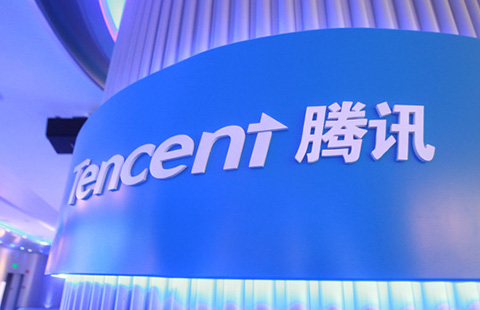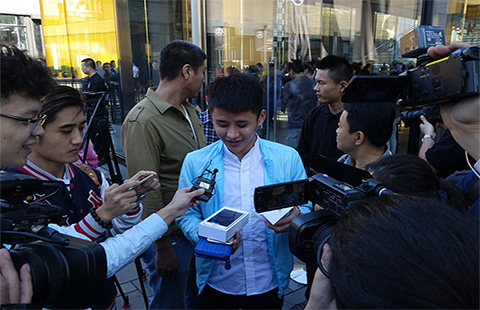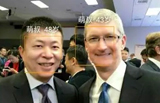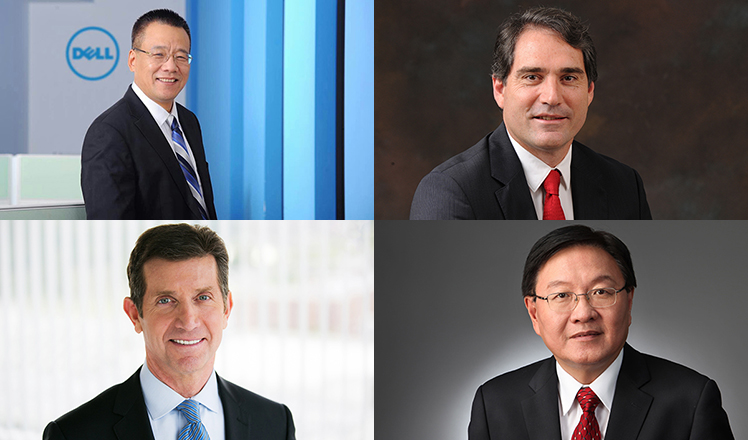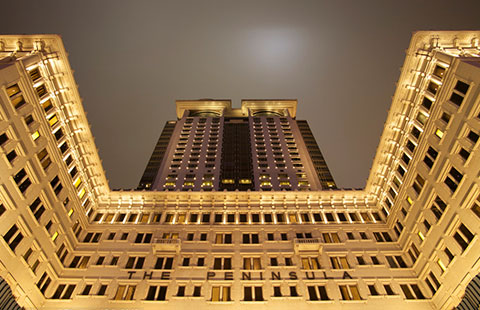High-tech heavyweights eye US investments
By LYU CHANG/GAO YUAN (China Daily) Updated: 2015-09-30 07:58The plan is to acquire high-end properties in places such as California. Since 2010, Wanxiang has invested in about 80 real estate projects in the US.
The group, which also owns Fisker Automotive, is an experienced investor in industries such as automotive, real estate and energy sectors. It has over 40 production plants and 13,500 employees in the US.
"We expect to see more co-operation between the world's two largest economies in the years ahead especially in high-tech industries," Jiang said.
Major commercial deals and commitments
1. China signs an agreement with Boeing to buy 300 aircraft, with a total value at $38 billion.
2. China welcomes the renewal of the China-US Agreement for Cooperation Concerning Peaceful Uses of Nuclear Energy.
3. China, the world's leading soybean importer, signs agreements to buy a record 13.18 million metric tons of the oilseed worth around $5.3 billion from the United States.
4. The National Energy Administration of China and the US Department of Energy plan to hold the 8th Joint Working Meeting under the China-US Bilateral Civil Nuclear Energy Cooperative Action Plan in China this October.
5. China and the US initiate cooperation on Green Ports and Vessels, identify priorities and mechanism of cooperation, and set up a working group to implement cooperative activities.
6. China and the US commit to increase cooperation on nuclear security, and make joint contributions to promoting global nuclear security and nonproliferation.
Microsoft rolls out red carpet
It was a day Harry Shum will always remember.
Last week, the senior executive at Microsoft showed President Xi Jinping the latest technologies coming out of the Seattle-based software giant as part of the state visit to the United States.
"This was an unforgettable experience to give a 20-minuet demonstration to President Xi," Shum, executive vice-president of technology and research at Microsoft, said.
"He appeared to enjoy it very much. We spent a lot of time discussing what to show President Xi because we have so many interesting projects."
First on the list at Microsoft's headquarters was how the company has digitized decades-old cyclone records on a gigantic touch screen.
This was rolled out for Xi, first lady Peng Liyuan and the high-level Chinese trade delegation.
Pointing at the path of one cyclone that hit Iowa in 1985, Shum asked if the president was still in the Midwestern state during his very first visit to the US.
"He thought for a while and then said he must have left Iowa ahead of the cyclone," Shum said, adding that Xi was interested in how Microsoft was able to digitize the data to make it relevant for meteorologists today.
Shum also demonstrated a pair of holographic glasses, but Xi did not try them on because of the tight schedule.
"We would have needed to adjust the glasses for Xi's eyes and it was not possible in such a short space of time," he said. "But he showed a lot of interest in the device after understanding how it works."
Shum is a world-renowned robotics engineer and is proud of the role that scientists of Chinese origin have played in the advance of technology. He hopes that will continue in the future.
"The company plans to have deeper research and development ties with Chinese scientists and institutions," he said.
During the trip, Microsoft announced plans to link up with Baidu Inc, the Beijing-based search engine, in China. Microsoft also struck a deal with Xiaomi Corp. The Chinese smartphone company has agreed to adopt Windows Azure to provide cloud services to customers.
- High-tech heavyweights eye US investments
- Microsoft, partner rapped over breach of rules in console venture
- Ten industries prioritized for upgrading manufacturing ability
- Nasdaq bullish on listing climate despite 'winter time' concerns
- Top 6 Apple Watch apps compatible with watchOS 2
- More shops join tax refund scheme for visitors
- Big data enterprises welcomed by Guizhou authorities
- Stocks tumble, Shanghai index down 2%
